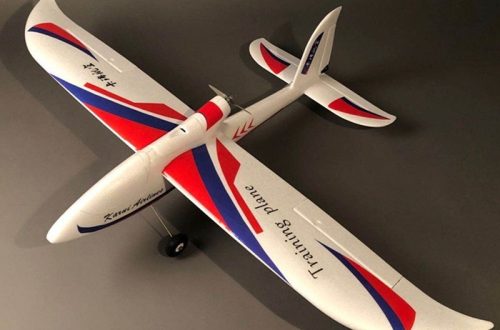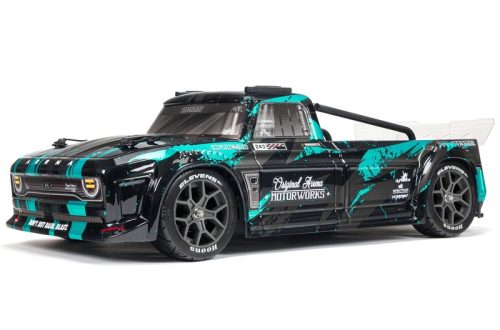Introduction to RC Gas Cars
RC gas cars offer thrilling speed and realism. With lifelike designs and engines that mimic their full-sized counterparts, they provide a unique blend of engineering and entertainment. As with any hobby involving complex machinery, understanding your RC gas car is key to maintaining and enhancing its performance.v
Owners and enthusiasts should familiarize themselves with the car’s components. Components like the engine, fuel system, chassis, and electronics dictate the vehicle’s function and require regular maintenance. To ensure longevity and reliability, maintaining these key parts is essential.
For beginners, starting with basic knowledge of RC gas cars is important. Learn how these cars work and what makes them different from electric models. This understanding will help you handle routine care and basic troubleshooting.
In this blog, we’ll dive deep into the anatomy of an RC gas car, spell out maintenance procedures, provide tips for fuel management, and guide you through common issues. Moreover, we will recommend upgrades to keep your car running at peak performance. Safety precautions will also be highlighted to ensure that your experience with rc gas cars is both enjoyable and secure.
Stay with us as we explore the exciting world of RC gas cars, and equip you with the knowledge to get the most out of your hobby.

Key Components of RC Gas Cars
Understanding the critical components of an RC gas car is vital for proper maintenance. Each part plays a crucial role in the car’s performance.
The Engine
The engine is the heart of an RC gas car. It’s responsible for converting fuel into motion. Maintain it by ensuring clean fuel, proper tuning, and regular oiling. Watch for signs of wear or damage, and address them promptly.
The Fuel System
A well-maintained fuel system is essential for peak engine performance. It includes the fuel tank, lines, and filters. Regular checks for leaks and blockages are necessary to prevent issues.
The Chassis and Suspension
The chassis provides the framework for your RC car. Together with the suspension, it affects handling and durability. Inspect these parts for signs of stress and ensure they are securely fastened.
The Transmission
The transmission is vital for transferring power from the engine to the wheels. Keep an eye on gears and clutch for smooth operation. Replace worn parts to avoid performance loss.
Electronics and Controls
These include servos, receiver, and transmitters. They’re crucial for precise control. Protect them from dirt and moisture. Check for consistent performance and rebind as needed.
Basic Maintenance Procedures
Maintaining your RC gas car is crucial for ensuring its long-term performance and reliability. Undertaking regular maintenance practices helps prevent breakdowns and keeps your car running smoothly.
Cleaning Your RC Car
Dirt and debris can hamper your rc gas car’s function. Begin by removing loose dirt with a soft brush or cloth. Compressed air can blow out dust from hard-to-reach areas. Use specific cleaners for the body and undercarriage; make sure they’re safe for electronics. After cleaning, dry thoroughly to prevent rust and electrical issues.
Checking and Replacing Filters
Your car’s air and fuel filters protect the engine from contaminants. Check these filters regularly for blockages or damage. If they’re dirty, replace them to maintain optimal engine performance. A clean air filter ensures a good air-fuel mix, while a clean fuel filter keeps impurities out of the engine.
Regular Engine Checkup
Frequent engine inspections prevent major troubles. Look for signs of wear, like strange noises or smoke. Ensure that the engine’s tuning matches the recommendations. Keep the engine oiled and check the spark plug’s condition. Replacing it timely can avoid misfires and keep the engine running efficiently.
Fuel Management and Storage
Proper fuel management is crucial for maintaining your RC gas car’s performance. Storing fuel correctly extends its lifespan and ensures safety. Here are key guidelines to follow:
Choosing the Right Fuel
Selecting the correct fuel type is essential. Use the fuel recommended by your car’s manufacturer. This ensures optimal engine performance and longevity.
Fuel Storage Tips
Store fuel in a cool, dry place away from direct sunlight. Use proper fuel containers that are designed for fuel storage. This reduces the risk of contamination and evaporation.
Handling Fuel
Always handle fuel with care. Use a funnel or a specialized fuel bottle for refilling your car. This minimizes spills and exposure. Ensure your hands are clean and dry when handling fuel to prevent contamination.
Checking Fuel Quality Before Use
Before refueling your RC gas car, always check the fuel for any particles or debris. Contaminated fuel can cause engine damage. If the fuel looks cloudy or contains particles, do not use it.
Long-Term Storage
If you plan to store your RC gas car for an extended period, drain the fuel tank. This prevents any chemical degradation that might damage the engine. Store the car in a dry and secure place to avoid any external damage.
Following these steps will enhance your RC gas car’s performance and extend its life.
Troubleshooting Common Issues
When your RC gas car encounters issues, effective troubleshooting is key to getting back on track. Whether you’re dealing with engine, steering, or electrical problems, having a methodical approach simplifies the process of pinpointing and resolving them.
Engine Troubles
Engine issues can manifest in several ways, including difficulty starting, stalling, or unusual noises. Start by checking the fuel quality and ensure there’s no contamination. Inspect the air and fuel filters; replace them if dirty. Examine the spark plug for signs of wear and replace it if necessary. Also, verify the engine’s tuning; it might require adjustments.
Steering and Suspension Problems
Steering glitches or suspension woes can dramatically affect your RC gas car’s performance. Check for any loose or damaged parts within the steering mechanism. Ensure the suspension components are secure and not worn out. Regularly examine the wheel alignment, as misaligned wheels can cause control issues. Apply lubrication if the parts are stiff or noisy.

Electrical System Diagnosis
Electrical faults in RC gas cars can cause erratic behavior or a total loss of control. Inspect all wires and connections for damage or corrosion. Check the batteries in both car and transmitter for charge and health. Rebind the receiver and transmitter if the car isn’t responding well. Protect electronics from moisture and clean them with electronic cleaner to prevent malfunctions.
Troubleshooting these common areas will help maintain your RC gas car’s reliability and ensure countless hours of enjoyment.
Upgrade Tips for Optimal Performance
Enhancing your RC gas car not only boosts performance but also ensures greater durability and pleasure in driving. With the right upgrades, your vehicle can surpass its original capabilities. Let’s explore some effective upgrade strategies to take your RC gas car’s performance to the next level.
Engine Upgrades
Upgrading the engine is a powerful way to boost your RC gas car’s output. Consider replacing the standard engine with a high-performance variant that offers increased horsepower and torque. This will noticeably speed up acceleration and top speed. Installing a larger carburetor or a better exhaust system can also enhance engine efficiency and power.
Suspension and Steering Enhancements
Improving the suspension system can drastically improve your car’s handling and stability. Upgrade to high-quality shock absorbers and springs to ensure smoother rides over rough surfaces. For steering, consider using more responsive servos and strengthening the linkage. This results in sharper and more precise control, vital for complex maneuvers.
Tire and Wheel Selection
Choosing the right tires and wheels is crucial for optimal performance. Select tires that match the terrain you plan to drive on—slick tires for smooth surfaces and knobby tires for off-road conditions. Lightweight, durable wheels improve agility and speed, enhancing overall driving experience. Always balance the wheels to prevent any wobbling at high speeds.
Implementing these upgrades will significantly improve the performance of your RC gas car, making each racing or driving session exhilarating.
Safety Precautions When Handling RC Gas Cars
Operating an RC gas car is an exciting hobby, but it comes with hazards that require careful attention. Adhering to safety precautions can prevent accidents and injuries. Below are essential tips to ensure safe handling of your RC gas car:
- Read the Manual: Always start by reading the manufacturer’s instructions. It contains specific safety advice for your car model.
- Wear Protective Gear: Use gloves and safety glasses when handling fuel or working on the car to protect against spills and flying debris.
- Fuel Handling: Only refuel in well-ventilated areas, away from any sparks or open flames. Handle fuel with care to avoid spills.
- Battery Safety: Be cautious with batteries. Charge them according to the guidelines and keep them away from flammable materials.
- Supervise Children: If children are involved, ensure they understand the safety rules and are always supervised.
- Safe Driving Area: Choose a safe area to drive your RC gas car, free of bystanders, pets, or traffic.
- Inspect Before Use: Before starting your car, check for loose parts and ensure nothing is obstructing controls or moving parts.
- Store Safely: When not in use, store your RC gas car in a safe place, away from children’s reach and potential hazards.
Following these simple yet critical safety tips can prevent unfortunate accidents and injuries. Enjoy your RC gas car with peace of mind by always prioritizing safety.

Conclusion: Keeping Your RC Gas Car in Top Condition
Maintaining your rc gas car is key to its performance. Aim for routine check-ups, proper cleaning, and timely upgrades. This will save you time and money in the long run. Regular upkeep ensures your car stays reliable and fast. Remember to select the right fuel. Keep it stored in proper containers. Handle it with care. Refill carefully, avoiding any contamination. Regularly check your car’s engine, filters, chassis, and electronics.
When it comes to troubleshooting, act fast on issues like engine trouble or steering glitches. Address electrical concerns quickly to prevent control loss. Don’t shy away from seeking help if needed. Online forums and RC car communities are good resources.
Consider performance upgrades as your skills grow. These may include a high-performance engine, advanced suspension, or specialized tires. Upgrades can boost your car’s speed, handling, and enjoyment. But be sure to know your car’s limits. Pushing too hard can lead to damage.
And, always follow safety tips. Wear protective gear, supervise kids, and choose a safe driving area. Make sure to read the manual for specific advice on your car model. Store your car in a clean, dry place.
In short, take care of your rc gas car with dedication. Regular maintenance, being proactive with issues, and upgrading responsibly will keep your car racing at its best. Focus on safety, and you’ll enjoy this thrilling hobby for years to come.





